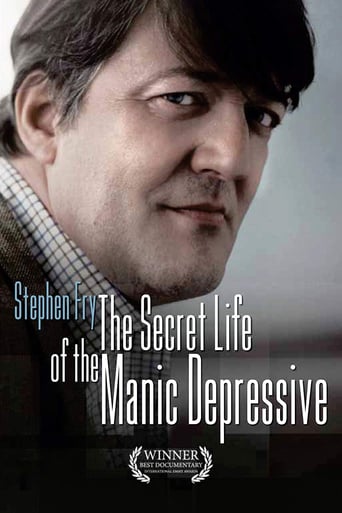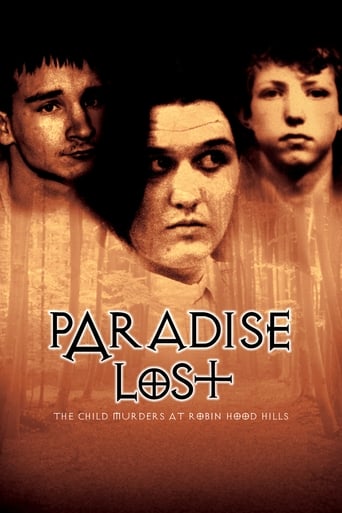Stephen Fry: The Secret Life of the Manic Depressive (2006)
In 1995, Stephen Fry was performing in Simon Gray's West End play, "Cell Mates." After three days, he walked out of the production. Sitting in a garage, his hand on the car ignition, he contemplated suicide for two hours, before fleeing his home country for the European mainland. It wasn't until this frightening episode that Fry was diagnosed with manic depression, or bipolar disorder, a psychological condition that sees its sufferers oscillating dangerously between dizzying heights of mania and gutting troughs of prolonged depression. This 2 part documentary unfolds like a personal journey of self-discovery. Fry confronts his medical condition by consulting experts and others who have suffered the disorder (including Richard Dreyfuss and Carrie Fisher). This is a valuable documentary, and, having been acquainted only with Stephen Fry's bubbly TV persona, a fascinatingly intimate character study.
Watch Trailer
Free Trial Channels
Cast


Similar titles
Reviews
I like Black Panther, but I didn't like this movie.
Expected more
Dreadfully Boring
If you're interested in the topic at hand, you should just watch it and judge yourself because the reviews have gone very biased by people that didn't even watch it and just hate (or love) the creator. I liked it, it was well written, narrated, and directed and it was about a topic that interests me.
'Stephen Fry: The Secret Life of a Manic Depressive', is an excellent explanation of manic depression in terms of providing a greater understanding of the mental illness for those who are perhaps unaware of its effects. The introduction has a powerful impact on the viewer: a step by step recreation of Fry's suicide attempt creates a depth of awareness about the illness' extremes. The documentary is informative, providing facts that include symptoms such as hallucinations and shortness of temper, as well as the fact that women suffering from manic depression become more at risk in pregnancy and childbirth. Fry speaks to a variety of people, whether it be someone in the same industry as him or someone from a different background. These diverse sources help to define what it is to be manic depressive, and also what it is like to experience its effects from a family member's perspective. The documentary explores the notion that often the illness is passed off as 'bad behaviour', and consequently as an audience we become more aware of our behaviour and understanding towards other people. Conflicting ideas such as the contrasting opinions of British and American psychiatrists about whether or not to diagnose the illness at an early age, allows the audience to think for themselves. The programme, while informative, does not provide all of the answers. This is important in consideration of the vastness of the topic and relates to the fact that there are still only limited methods with which we can detect manic depression. The coinciding camera close- up of the modern technology involved in scientific research, and the doctor's description of our lack of ability to detect the illness through brain scans and gene tests, is particularly effective. It encompasses the notion that in a modern society, research is a work in progress and to develop this progress, it is important for the world's human population to have an awareness of its strengths as well as its limitations.
In 1995, Stephen Fry was performing in Simon Gray's West End play, "Cell Mates." After three days, he walked out of the production. Sitting in a garage, his hand on the car ignition, he contemplated suicide for two hours, before fleeing his home country for the European mainland. It wasn't until this frightening episode that Fry was diagnosed with manic depression, or bipolar disorder, a psychological condition that sees its sufferers oscillating dangerously between dizzying heights of mania and gutting troughs of prolonged depression.'Stephen Fry: The Secret Life of the Manic Depressive (2006),' a two- part documentary directed by Ross Wilson, unfolds like a personal journey of self-discovery. Fry confronts his medical condition by consulting experts and others who have suffered the disorder (including Richard Dreyfuss and Carrie Fisher). It's very bold for Fry, and indeed all these people, to take the viewer so closely into his personal struggles, and such frankness would, I imagine, be invaluable for anybody saddled with manic depression, whether it's been diagnosed or not.Throughout the documentary, Fry does seem quite insistent on stamping manic depression as a physiological disorder, encouraging the use of medication to control the condition (though Fry himself ultimately decides against any medication). Oddly, I don't recall much mention of therapy as an effective management technique, even though it must play a considerable role in the road to recovery. This is a valuable documentary, and, having been acquainted only with Stephen Fry's bubbly TV persona, a fascinatingly intimate character study.
I have been diagnosed bipolar 1 and a half year ago and must say that, read, saw a lot about this. This documentary is by far the best I saw... I would suggest to any bipolar trying to explain what is manic depression about, to recommend this documentary. It shows different levels, aspects of the trouble with great humanity. Stephen Fry also shows how his environment perceives his trouble. A few aspects, however, could have been mentioned in the movie, particularly the heredity. My grand father and my uncle were also manic depressive and ended their lives miserably... Another criticism is about the Stephen Fry's personal choice. I can understand it as he has been successful in his career. However, owed to a certain discrimination, lost of manic depressive end up living in a permanent loneliness and sadness. At least, it was my case. For those people, and it is the case of the majority of bipolar people, there is no other choice than go for medication and therapy.
This is a documentary film about Stephen Fry's and other people's life with bipolar affective disorder.I find the documentary well researched and well balanced. For example, they had various leading British psychiatrists talking about the disorder. In addition, the very different views on bipolar affective disorder in the United States were also represented. The spectrum of severity of bipolar affective disorder was represented, ranging from severe depressive episodes to manic episodes with psychosis. Various forms of treatment were touched upon. It also touched on briefly on unipolar depression to make the spectrum of mood disorder more complete.I was the most impressed by the number of celebrities and laypeople appearing on the documentary to talk about their own experience with mental illnesses. This certainly helps to reduce the stigma attached to psychiatric illnesses.It could easily be imagined that it must have been a painful documentary to make for Stephen Fry. I admire his courage. I certainly hope that this documentary will raise public awareness of bipolar affective disorder and reduce the stigma attached to it.

















